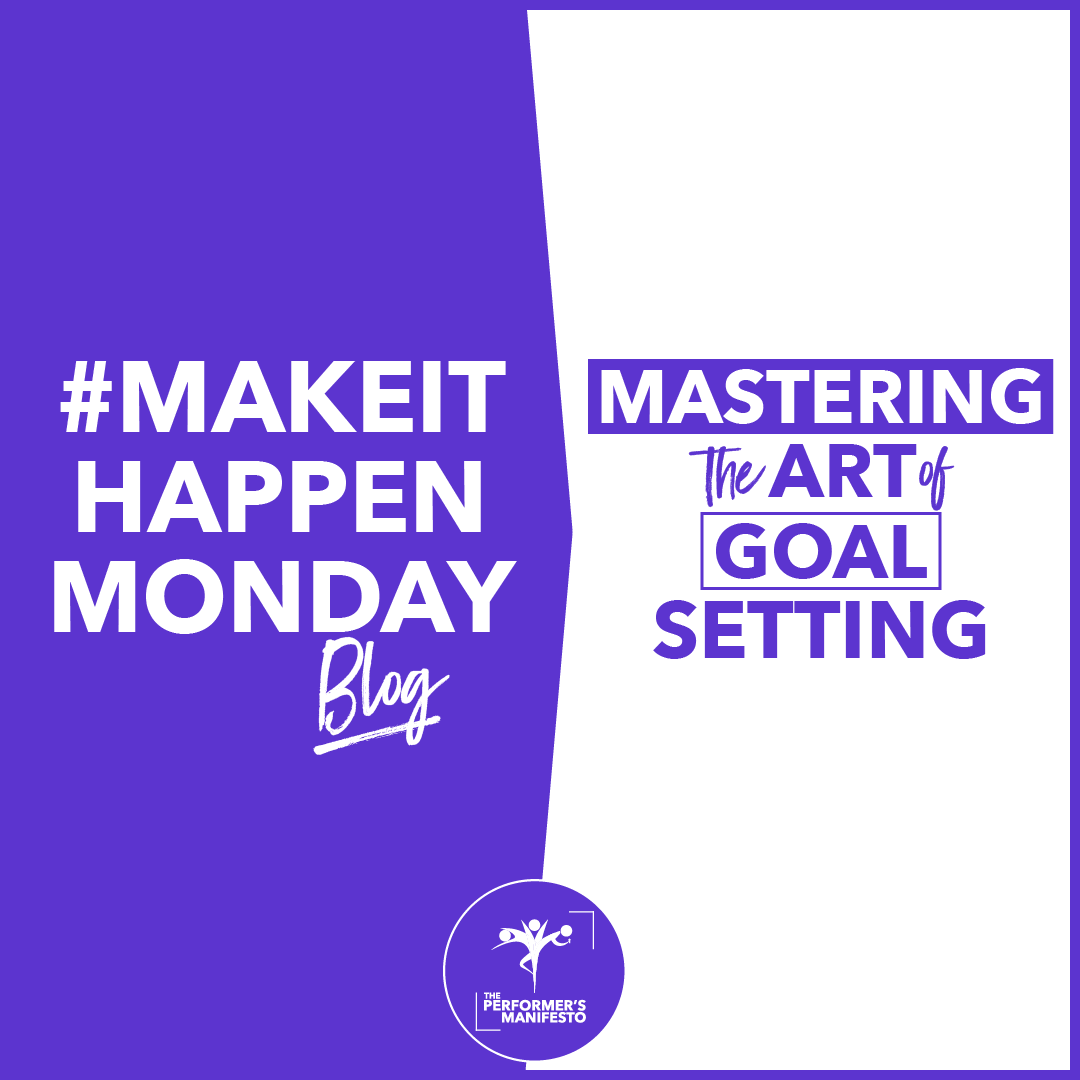Many creatives, including performers, often struggle with goal setting. The process can seem daunting and unclear, leading to frustration and a lack of direction. However, a great place to start setting goals in a way that you can achieve them is by using the SMART framework.
This #MakeItHappenMonday we’re diving into the power of SMART Goals—a method that can transform your dreams into actionable steps, leading to a productive and proactive week. Whether you’re preparing for an audition, planning a performance, or working on personal development, SMART Goals are your ticket to success.
What Are SMART Goals?
SMART stands for Specific, Measurable, Attainable, Realistic, and Timely. Let’s break down each component:
Specific: Your goal should be clear and specific. Avoid vague statements and focus on what you want to achieve. Ask yourself: What do I want to accomplish? Why is this goal important? Who is involved? Where is it located? Which resources or limits are involved?
Example: “I want to improve my vocal range to enhance my singing performance.”
Measurable: Define how you will measure progress and know when you’ve successfully reached your goal. Ask: How much? How many? How will I know when it is accomplished?
Example: “I will practice vocal exercises for 30 minutes every day and track my progress by recording my sessions weekly.”
Attainable: When you identify goals that are important to you, you begin to figure out ways you can realize them. You develop the attitudes, abilities, skills, and even the financial capacity to reach them. Ask: How can I accomplish this goal? Do I have the necessary skills and resources?
Example: “I have access to online tutorials and a vocal coach to help me improve my technique.”
Realistic: While the term “realistic” can sometimes feel limiting, in this context it means setting a goal that you are both willing and able to work towards. A goal can be both high and realistic. Only you can decide just how high your goal should be. Ask: Is this goal manageable? Do I have the necessary support and resources?
Example: “Improving my vocal range will enhance my performance opportunities and versatility as a singer.”
Timely: Set a deadline to create a sense of urgency and prompt action. Ask: When? What can I do six months from now? What can I do six weeks from now? What can I do today?
Example: “I will improve my vocal range within the next three months and perform a challenging song at the next local talent showcase.”
Putting It All Together
Let’s set a SMART Goal for this week:
Goal: “I will extend my vocal range by practicing specific vocal exercises for 30 minutes daily and receiving weekly feedback from my vocal coach. My aim is to perform a challenging song confidently at the local agency showcase in three months.”
Take Action!
- Set Your Own SMART Goal: Think about what you want to achieve this week. Use the SMART framework to define your goal. Write it down and keep it visible.
- Share Your Goal: Accountability is powerful! Share your SMART Goal with a friend, mentor, or on social media using the hashtag #MakeItHappenMonday. Tag us so we can cheer you on!
- Track Your Progress: Keep a journal or use a goal-tracking app to monitor your daily practice and progress. Celebrate small victories along the way.
- Seek Feedback: Don’t be afraid to ask for feedback. It’s an essential part of growth. Schedule regular check-ins with a coach or mentor.
- Reflect and Adjust: At the end of the week, reflect on your progress. Did you achieve your goal? If not, what can you adjust to make it more attainable?
By setting SMART Goals, you’re not only organizing your week but also laying the foundation for long-term success. Remember, every small step counts towards your bigger dreams.
Let’s make this week productive and proactive. You’ve got this!


